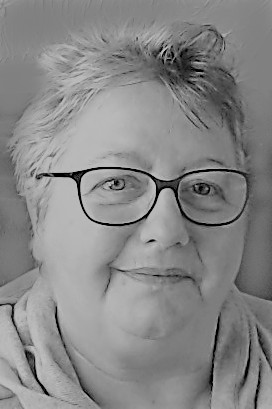Changing City Environments: Formulating Enquiry Questions (Edexcel GCSE Geography A) : Revision Note
Formulating Urban Enquiry Questions
Urban environment fieldwork enquiry
To undertake the urban fieldwork enquiry, a range of practical skills and methods will be used
These can apply to any urban fieldwork
Stages of the enquiry process
The enquiry process is made up of six stages
Identification of a question and context
Selecting and using data collection methods
Processing and presenting your data
Analysing your data and reaching conclusions
Evaluation of the fieldwork
Geographical theory and urban environments
The fieldwork enquiry should be linked to geographical theory
In the urban fieldwork enquiry, the theories of the changes in urban land use and sustainability can be used
Using a model or case studies helps to explain why certain processes occur or trends/patterns can be seen
They enable the identification of where the data collected is not as expected
Aims and hypothesis
The aims and hypothesis come from the questions asked about change in urban environments such as:
How does the quality of the urban environment vary along a transect?
What impact on the urban environment does the building of a new housing estate/road/industrial estate have?
How has the land use on the urban fringe changed?
Examples of an aim would be:
An investigation into the environmental impact of a new road/housing estate/business park in the city of Y
An investigation into changing in land use on the urban-rural fringe of the city of X
An investigation into environmental quality from the CBD to urban fringe in the city of W
Hypotheses are statements that are tested through fieldwork
An example of a hypothesis would be:
Environmental quality improves with distance from the CBD
A null hypothesis is a statement that is opposite to a hypothesis
This ensures there is no bias when collecting the evidence
You are not ignoring evidence because it doesn't prove the statement
If you cannot prove the statement then the opposite must be true
Examples of a null hypothesis would be:
Environmental quality does not improve with distance from the CBD
After the aims and hypothesis have been established the next steps are to:
Select the sites: this will involve sampling
Decide on the equipment to be used
Consider health and safety issues: complete a risk assessment
Data collection methods to be used
Site selection and sampling
It is not practical to take measurements or look at changes in all parts of the urban environment
To select sites, sampling should be used
True sampling will:
Reduce bias
Provide an overview of the whole
There may be situations where access to the sample site may be limited, meaning an opportunistic approach may need to be taken
However, this should be as close as possible to the site selected using sampling
The most commonly used sampling strategies for urban environment enquiries are:
Systematic: a sampling of sites/people at regular intervals along a transect line
Random: all sites have an equal chance of being selected
Stratified: sampling sites which represent the whole
If 10% of the population is over 65, then 10% of a questionnaire sample should be over 65
Site location can be recorded using GPS to give an accurate location using latitude and longitude
Grid reference and compass points can also be used
Worked Example
A student collected views of residents about the quality of the environment in a central urban area.
The student used a random sampling strategy to collect the data
Explain one disadvantage of using this sampling strategy
(3)
One mark will be awarded for identifying a disadvantage/limitation of random sampling
The second and third marks will be awarded for explaining the disadvantage/limitation
Answer:
One possible answer is:
Random sampling can cause bias (1) because the person collecting the information may unintentionally focus on certain social groups (1) which may lead to unrepresentative data (1)
Equipment
To complete the urban environments enquiry a range of equipment is needed
The equipment needed may include the following:
Record sheets
Interview Sheets
Pencil for completing recording sheets
Camera to take photographs of land use
Digital noise meter
Environmental Quality Surveys
Maps
Risk Assessment
Any fieldwork will involve consideration of health and safety using a risk assessment
Risks specifically associated with urban environment fieldwork may include:
Weather conditions
Working in an unfamiliar place
Traffic
Getting lost
Speaking to strangers
Pollution
Cars
Worked Example
State one risk that you considered before collecting your urban fieldwork data
(1)
To be awarded the mark for a hazard you must indicate why what you have written is a risk
Answer:
Possible answers may include:
Getting lost (1)
Offending people (1)
Accidents due to volume of traffic (1)

You've read 0 of your 5 free revision notes this week
Sign up now. It’s free!
Did this page help you?

